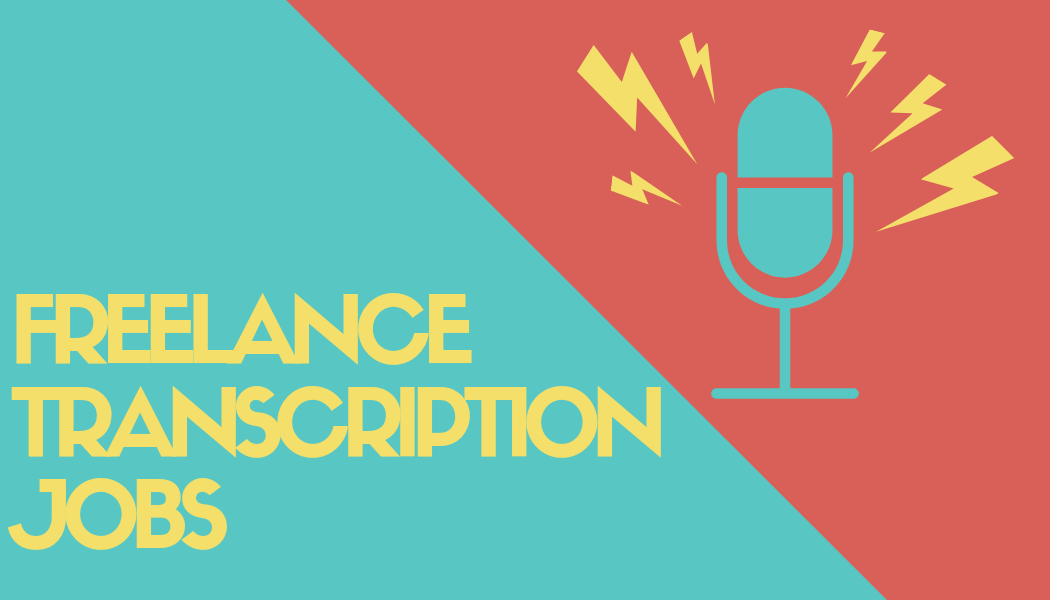Are you curious about how transcription jobs can provide a flexible and rewarding freelance career? Wondering if you have the skills needed or where to find the best opportunities? Let’s dive into what makes freelance transcription not just a viable option, but a thriving and strategic career path.
Transcription jobs are more than just listening and typing. They encompass a world of opportunities that span various industries including legal, medical, and media. Each sector requires a unique set of skills and offers different benefits.
From my point of view, the flexibility to work from anywhere and the ability to set your own hours are among the most appealing aspects of freelance transcription.
Moreover, as demand for digital content continues to grow, so does the need for skilled transcriptionists. This means more opportunities for you to find work that not only pays well but also fits your lifestyle.
In this section, we will explore the essential skills required for transcription, where to look for jobs, and how to stand out in this competitive field. I recommend starting with a strong understanding of the transcription industry’s requirements and the various niches within it. By the end of this guide, you will have a clear roadmap to launching or advancing your freelance transcription career.
Remember, with the right approach and tools, you can unlock a world of opportunities in the transcription field. I believe that with dedication and the right guidance, anyone can succeed in this versatile career path.
Table of Contents
Explore the Essentials of Freelance Transcription Jobs
Did you know that the global transcription market is expected to grow significantly in the next few years, driven by advancements in technology and increasing demand for real-time documentation? This trend is opening up vast opportunities for individuals seeking freelance careers. Here’s how you can start preparing for and benefiting from these opportunities.
Transcription jobs offer incredible flexibility, allowing you to work from anywhere at any time. This flexibility is ideal for those balancing other commitments, such as family or studies.
Moreover, transcription can be a gateway to various industries, from legal services to healthcare, each requiring and valuing the skill of accurate transcription. I think this diversity makes freelance transcription a lucrative and interesting career option.
Most importantly, succeeding in freelance transcription not only requires understanding what the job entails but also recognizing the growth potential and adapting to technological advancements.
By staying updated with the latest software and transcription practices, you can enhance your efficiency and accuracy, making you a preferred choice for clients. From my perspective, continuous learning and adaptability are key in turning transcription into a sustainable and rewarding freelance career.
Why Choose Transcription as Your Freelance Career?
Transcription as a freelance career offers more than just the benefit of working from home. I strongly believe it provides a unique opportunity to learn about various fields while honing your language skills. Whether it’s a medical, legal, or entertainment transcription, each task allows you to delve into different worlds, making every day unique and educational.
Additionally, transcription jobs can be quite rewarding financially, especially as you specialize and gain expertise in specific niches. With the increase in video content and podcasts, there is a high demand for transcription services in media and journalism. In my opinion, this makes transcription a viable career choice for those looking to combine flexibility with a steady income.
Lastly, freelance transcription builds crucial skills such as attention to detail, listening skills, and time management. These skills are transferable and beneficial in any career path. Therefore, I recommend considering transcription if you’re looking for a career that fosters continuous learning and personal growth.
Essential Skills Needed for Successful Transcription Jobs
To excel in transcription, certain skills are indispensable. Firstly, a high typing speed and accuracy are crucial. These skills ensure efficiency and reduce the turnaround time on projects, which can significantly boost your earnings and client satisfaction.
Secondly, excellent listening skills and a good command of the language you are transcribing in are necessary. This involves not just understanding different accents and dialects but also grasping industry-specific terminology which can be particularly challenging in fields like medical or legal transcription.
My advice is to invest in quality headphones and transcription software that can help in enhancing audio clarity and playback control.
Lastly, I cannot stress enough the importance of reliability and organizational skills. Being able to manage deadlines and maintain high-quality work consistently are traits that make a freelance transcriptionist stand out. I believe that mastering these skills can make your transcription career not just feasible but truly prosperous and fulfilling.
How to Find Lucrative Transcription Jobs Online
Are you wondering where to start looking for well-paying freelance transcription jobs online? With the digital economy booming, numerous platforms offer opportunities for transcriptionists, but knowing which ones can be truly lucrative is key to maximizing your income potential.
Finding lucrative transcription jobs online requires a strategic approach. First, it’s essential to identify and register on reputable platforms that connect freelancers with clients needing transcription services.
From my perspective, platforms like Rev, TranscribeMe, and Scribie are great starting points due to their steady flow of work and relatively fair pay rates. However, I recommend exploring niche-specific platforms if you have expertise in areas like medical or legal transcription.
Second, it’s important to build a strong profile that highlights your transcription skills, experiences, and any specializations. A well-crafted profile can make a significant difference in how potential clients view your capabilities. In my opinion, including testimonials from previous clients and samples of your work can greatly enhance your profile’s effectiveness.
Lastly, continuously improving your skills is crucial. As you gain more experience and receive positive feedback from clients, you can start to qualify for higher-paying jobs that require greater expertise.
My advice is to keep learning and stay updated with the latest transcription tools and technologies, as this will allow you to work more efficiently and take on more complex, and thus better-paying, projects.
Top Platforms to Start Your Transcription Career
When considering where to begin your freelance transcription career, choosing the right platform can make all the difference. I strongly believe that platforms like Rev offer a good balance between accessibility for beginners and potential for growth into more specialized transcription tasks.
Similarly, TranscribeMe is known for its welcoming environment for new transcriptionists and its focus on shorter, more manageable files.
Another excellent platform is GoTranscript, which is praised for its flexibility in job selection and its supportive community. These platforms not only help you start your career but also provide opportunities to grow and specialize in areas like legal or medical transcription.
Speaking personally, my impression is that platforms that offer training resources or feedback mechanisms can be particularly beneficial for new transcriptionists.
Tips for Identifying High-Paying Transcription Opportunities
To identify high-paying transcription opportunities, I recommend closely monitoring the kinds of jobs posted on your chosen platforms. Look for trends in demand for certain types of transcription services, such as corporate earnings calls or specialized medical transcription, which typically offer higher rates.
Additionally, my suggestion is to network with other transcriptionists online through forums and social media groups. These communities can be invaluable sources of information on which clients or industries tend to pay well and have consistent work.
According to many experienced transcriptionists, direct clients often pay more than third-party platforms, so building a network that can refer direct clients to you can be a game-changer.
Lastly, I am of the view that maintaining a high standard of work is essential. High-quality, reliable transcriptionists often receive repeat clients, referrals, and premium projects.
Always aim to exceed client expectations to secure these lucrative opportunities. From my experience, this approach not only enhances your reputation but also your earning potential in the transcription industry.
Mastering the Art of Transcription: Tools and Techniques
Just as a craftsman relies on quality tools to shape materials, a transcriptionist depends on top-notch software and refined techniques to produce accurate and efficient transcriptions. This comparison underlines the importance of having the right tools and skills in the field of transcription, where precision and speed are paramount.
To truly master the art of transcription, it’s crucial to understand the impact of using the right tools. These tools not only make the job easier but also enhance the quality of your output.
From my perspective, investing in high-quality transcription software is akin to a carpenter investing in a good set of tools—it’s essential for professional results. Look for software that offers features like noise reduction, speed control, and easy integration with foot pedals for hands-free control.
Furthermore, mastering transcription requires more than just hardware. Developing effective transcription techniques—like proper typing posture, ergonomic setup, and regular breaks—can significantly boost your productivity and reduce fatigue. I recommend setting up a dedicated workspace that promotes focus and efficiency. This setup is crucial for maintaining quality and speed in your work.
Lastly, staying updated with the latest advancements in transcription technology, such as voice recognition software and AI tools, can give you a competitive edge. I think embracing these technologies can drastically reduce your workload and improve accuracy, allowing you to take on more projects and increase your earnings.
Must-Have Software for Efficient Transcription
When considering transcription software, I strongly believe that versatility and functionality are key. Programs like Express Scribe are widely recognized for their robust features, including foot pedal support and versatile playback options, which are indispensable for transcriptionists.
Another essential tool is oTranscribe, which offers a free, web-based platform that integrates audio playback and text editing in one window, eliminating the need for toggling between applications.
For those who transcribe multi-speaker audio files, software like InqScribe, which allows for easy insertion of time codes and speaker identification, can be a game-changer.
Speaking personally, my experience has shown that the right software not only speeds up the transcription process but also reduces the strain on the transcriptionist.
Investing in software that offers automatic updates and excellent customer support can also enhance your transcription practice. According to industry experts, choosing software that evolves with your growing needs is crucial for long-term success in the field.
Enhancing Accuracy and Speed in Transcription
To enhance both accuracy and speed in transcription, a multi-faceted approach is required. First, it’s vital to use high-quality headphones that provide clear audio and noise cancellation. This makes it easier to catch difficult-to-hear parts of the audio, which is crucial for accuracy. My advice is to invest in a pair that is comfortable for long sessions of wear.
Second, becoming familiar with the content area you are transcribing can significantly speed up your transcription process. For example, understanding medical terminology or legal jargon before starting a transcription project in those fields can decrease lookup times and increase overall speed. I suggest regularly updating your knowledge base in your area of specialization.
Lastly, practice is key to mastering any skill, and transcription is no different. From my point of view, using practice files and timing your sessions can help identify areas for improvement while gradually increasing your speed and accuracy.
Remember, the goal is not just to transcribe quickly but to maintain high quality in your transcripts. I am of the view that consistent practice and dedication are indispensable for achieving this balance.
Building a Successful Freelance Transcription Career
“Success is the sum of small efforts, repeated day in and day out.” — Robert Collier. This quote is particularly relevant when considering the path to building a successful freelance transcription career, where persistence, skill enhancement, and strategic planning play crucial roles.
Starting a career in freelance transcription involves more than just the ability to type quickly. From my perspective, it’s about creating a strong foundation that includes a robust portfolio and an effective strategy for attracting and retaining clients.
Crafting a detailed and impressive portfolio is the first step; it showcases your capabilities and professionalism to potential clients, setting you apart from competitors.
I strongly believe that specialization is key in standing out in the crowded transcription market. By focusing on specific industries such as medical, legal, or technical transcription, you can appeal to a niche market looking for experts, not just generalists. This approach not only increases your value but also allows you to charge higher rates based on your specialized skills.
Lastly, continuous learning and adapting to new technologies in the field are essential. Keeping up with innovations like speech recognition software and expanding your skills into areas like live transcription can open up new opportunities.
My advice is to never stop learning and evolving, as the transcription industry is continuously changing. This mindset will help you maintain relevance and competitiveness in your freelance career.
Crafting an Impressive Transcription Portfolio
An impressive transcription portfolio should not just display your transcription skills but also reflect your understanding of the industry and attention to detail.
I recommend including a variety of samples that demonstrate your ability to handle different types of transcription work, such as interviews, legal proceedings, and medical reports. This diversity shows potential clients your versatility and breadth of experience.
Furthermore, I believe that testimonials from previous clients can significantly enhance your portfolio. Positive feedback and endorsements can provide social proof of your reliability and quality of work, which is crucial for building trust with new clients.
Speaking personally, I’ve found that a well-rounded portfolio with client testimonials often speaks louder than a simple list of job experiences.
In addition to your work samples and testimonials, including a personal bio that highlights your qualifications, specific skills, and any relevant certifications can create a more compelling narrative.
According to industry standards, clients are often drawn to transcriptionists who not only have strong technical skills but also present a professional image and clear communication about their expertise.
Strategies for Growing Your Client Base in Transcription
Growing your client base in the transcription industry requires both effective marketing and stellar customer service. I suggest starting with a solid online presence, which includes a professional website and active profiles on social media platforms and professional networks like LinkedIn. These platforms are invaluable for connecting with potential clients and industry peers.
Networking, both online and in person, is another crucial strategy. Attending industry conferences, workshops, and seminars can help you connect with potential clients and other transcriptionists who might provide referrals.
My recommendation is to actively participate in discussions and forums related to transcription to increase your visibility and establish yourself as a knowledgeable professional in the field.
Finally, I would say that offering impeccable service is the most effective strategy for retaining clients and encouraging word-of-mouth referrals. Ensuring timely delivery of transcripts, maintaining communication with clients, and being flexible in meeting their specific needs can make you stand out.
From my point of view, consistently exceeding client expectations is key to long-term success and growth in freelance transcription.
Navigating Challenges in Freelance Transcription Jobs
While freelance transcription offers flexibility and the potential for a good income, it’s undeniable that it also comes with its own set of challenges. Acknowledging these difficulties is the first step towards effectively overcoming them and thriving in this competitive field.
Freelance transcription jobs require not only skill in typing and listening but also a high degree of self-discipline and effective time management. In my opinion, one of the most common challenges is managing fluctuating workloads, which can vary from one week to the next. Establishing a routine and setting clear priorities can help maintain a steady workflow and reduce stress.
Another challenge is the isolation that often comes with freelance work. Without a traditional office environment, some may feel disconnected or lack motivation. I recommend building a network of fellow freelancers for support and to exchange ideas and experiences. This can provide not only companionship but also practical advice on handling the intricacies of freelance work.
Lastly, staying up-to-date with the latest transcription tools and industry best practices is crucial. The field is evolving, with new technologies that can either pose a threat to traditional transcription roles or serve as valuable assets. I strongly believe that continuous learning and adaptation are essential to keep your skills relevant and your services in demand.
Common Pitfalls and How to Avoid Them
One of the common pitfalls in freelance transcription is poor quality work due to rushing to meet deadlines or handle a high volume of work. My advice is to focus on quality over quantity; it’s better to deliver excellent work for fewer projects than to submit mediocre transcripts for many. This approach will help build your reputation and lead to more consistent work.
Underpricing services is another frequent mistake, especially by newcomers eager to enter the market. I suggest conducting thorough research on standard rates within the industry and setting fair, competitive prices based on your skills and experience. Remember, from my perspective, clients are willing to pay more for reliable, high-quality transcription services.
Lastly, failing to back up work can lead to significant setbacks. Loss of data due to technical failures can be devastating. Therefore, I recommend regularly backing up all work to cloud storage or an external hard drive. This simple step can save you from potential disasters and ensure you always deliver on your commitments.
Managing Workload and Deadlines Effectively
Effective management of workload and deadlines is critical for success in freelance transcription. I would say that using productivity tools, like digital calendars and task management apps, can help you keep track of deadlines and balance multiple projects efficiently. These tools can provide reminders and help you plan your work schedule in advance.
Another strategy is to set realistic deadlines with clients. Communicate openly about how much time you need to deliver high-quality work, considering both your speed and the complexity of the audio files. I believe that honesty about capabilities and time requirements not only sets realistic expectations but also builds trust with clients.
Lastly, from my point of view, taking regular breaks and ensuring you have time off is crucial for long-term sustainability in any freelance job, including transcription. Burnout can significantly decrease productivity and affect the quality of your work. I strongly believe in the importance of balancing work and rest to maintain high performance and job satisfaction.
Start Your Freelance Transcription Career with Confidence
Embarking on a freelance transcription career can be both exhilarating and daunting. However, with the right preparation and mindset, you can start this journey with confidence and look forward to a rewarding professional path. Here’s how you can start shaping your successful career today.
Firstly, equip yourself with the necessary skills and tools that are essential for transcription work. Investing in quality transcription software and practicing your typing and listening skills are foundational steps.
I believe that being well-prepared technically will boost your confidence and efficiency from the start. Also, understanding the industry’s standards and requirements will help you meet and exceed the expectations of future clients.
Secondly, building a robust network and establishing a strong online presence are crucial for long-term success. Create a professional profile on social media platforms and freelance job websites, and engage with other transcription professionals. From my point of view, these actions will not only help you gain visibility but also provide you with valuable insights and opportunities in the transcription industry.
Lastly, always aim for continuous improvement and professional development. Stay updated with the latest trends and technologies in transcription. I strongly believe that an attitude of lifelong learning and adaptation to new challenges is key to staying competitive and successful in this field. Moreover, my advice is to seek feedback regularly and use it constructively to refine your skills and services.
Frequently Asked Questions (FAQ)
What is freelance transcription?
Freelance transcription involves converting audio or video recordings into written text. Freelancers work independently, often from home, providing transcription services to various clients such as medical professionals, legal firms, and media companies.
How do I become a freelance transcriptionist?
To become a freelance transcriptionist, you need strong typing skills, excellent grammar, and good listening abilities. Start by taking transcription courses, practicing with transcription software, and creating a portfolio. Joining transcription platforms and applying for jobs can help you gain experience and build a client base.
What equipment do I need for freelance transcription?
A computer with internet access, good-quality headphones, a foot pedal for controlling audio playback, and transcription software are essential. Additionally, a quiet workspace helps ensure accuracy and productivity.
How much can I earn as a freelance transcriptionist?
Earnings vary based on experience, specialization, and the number of hours worked. Beginners might earn $10-$15 per hour, while experienced transcriptionists in specialized fields can earn $25-$30 or more per hour.
What are the different types of transcription jobs?
Transcription jobs can be categorized into general, medical, and legal transcription. General transcription includes media, business, and academic content. Medical transcription involves transcribing medical reports, while legal transcription focuses on court hearings, depositions, and other legal documents.
How can I find freelance transcription jobs?
Freelance transcription jobs can be found on various platforms like Upwork, Freelancer, and TranscribeMe. Joining specialized transcription sites, networking in transcription forums, and directly approaching potential clients can also lead to job opportunities.
What skills are essential for a successful freelance transcriptionist?
Key skills include fast and accurate typing, excellent grammar and punctuation, attention to detail, good listening abilities, and proficiency with transcription software. Familiarity with the subject matter being transcribed, such as medical or legal terminology, is also beneficial.
Are there any transcription certifications or courses that can help me get started?
How do I manage my time effectively as a freelance transcriptionist?
Effective time management involves setting realistic goals, creating a daily schedule, prioritizing tasks, and taking regular breaks to avoid burnout. Using productivity tools and maintaining a dedicated workspace can also enhance efficiency.
What are the challenges of freelance transcription, and how can I overcome them?
Challenges include dealing with poor audio quality, maintaining concentration for long periods, and managing inconsistent workloads. Overcome these by using high-quality equipment, practicing active listening, taking regular breaks, and building a diverse client base to ensure a steady flow of work.






